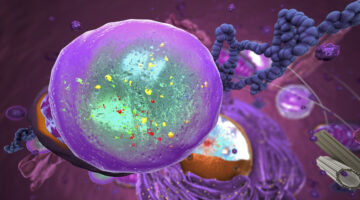Pharmaceuticals distributor Cardinal Health (NYSE: CAH) has opened a molecular imaging center with the goal of developing new radioactive imaging agents that will help doctors treat a wide range of diseases like cancer, heart disease and neurological disorders.
Cardinal scientists, engineers and manufacturing experts will work with clients in the pharmaceutical and academic research industries at Cardinal’s Center for the Advancement of Molecular Imaging in Phoenix, Arizona, according to a statement from Dublin, Ohio-based Cardinal.
The center’s opening represents a strategic investment by Cardinal in the future of the molecular imaging and pharmaceuticals industries, according to John Rademacher, president of the company’s nuclear and pharmacy services. “By helping pharmaceutical companies and academic research institutions accelerate innovation and reduce the time it takes to get new imaging agents to market, we can more accurately diagnose diseases earlier in their onset,” he said.

A Deep-dive Into Specialty Pharma
A specialty drug is a class of prescription medications used to treat complex, chronic or rare medical conditions. Although this classification was originally intended to define the treatment of rare, also termed “orphan” diseases, affecting fewer than 200,000 people in the US, more recently, specialty drugs have emerged as the cornerstone of treatment for chronic and complex diseases such as cancer, autoimmune conditions, diabetes, hepatitis C, and HIV/AIDS.
Cardinal is among the nation’s largest distributors of radiopharmaceuticals and operates more than 150 nuclear pharmacies nationwide. Radiopharmaceuticals are radioactive drugs that are ingested or injected to help doctors detect and diagnose abnormal cellular functions that can be associated with diseases. The drugs are typically used in conjunction with imaging devices.
The U.S. market for certain types of radiopharmaceuticals, such as Positron Emission Tomography (PET) imaging agents, is expected to grow substantially in the coming years and reach $4.8 billion in 2017 from $1.2 billion in 2009, according to a report last year by Bio-Tech Systems.
For Cardinal, partnering with drug companies and researchers to develop radiopharmaceuticals could enable the Ohio company to more easily win distribution deals with those clients once those radiopharmaceuticals reach the market.
The center will house stand-alone laboratory space to allow the company’s partners to conduct confidential radiopharmaceutical and PET imaging agent experiments. The center will also focus on improving the manufacturing processes around PET agents.












